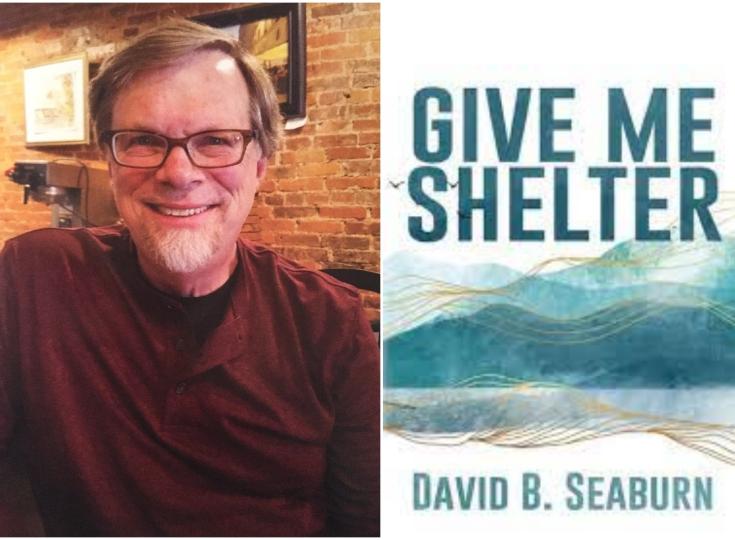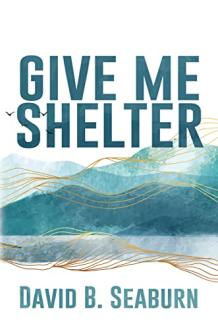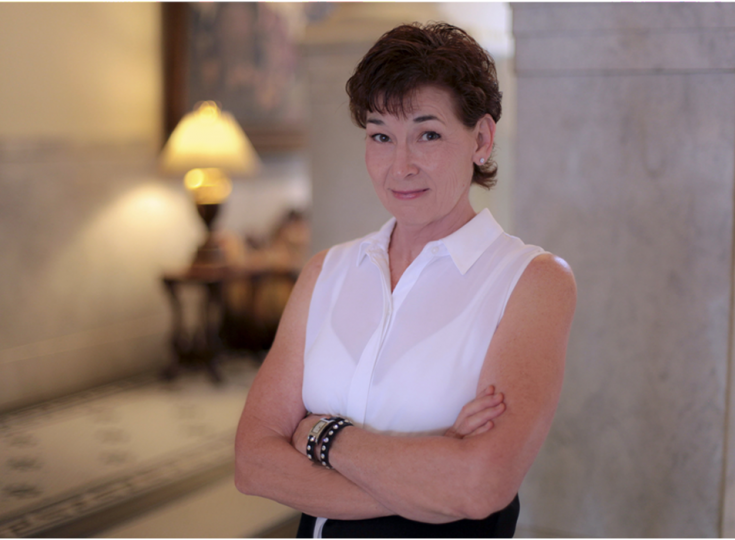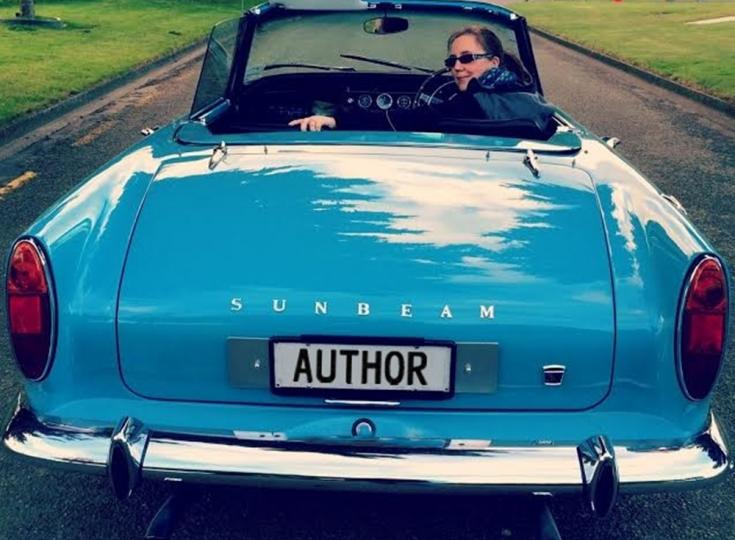David B Seaburn - Emotional and Engaging Historical Fiction

David B. Seaburn’s first novel, Darkness is as Light, was published in 2005. He followed with Pumpkin Hill (2007), Charlie No Face (2011), a Finalist for the National Indie Excellence Award in General Fiction, Chimney Bluffs (2012), More More Time (2015), and Parrot Talk (2017), which placed second in the TAZ Awards for Fiction (2017) and was shortlisted for the Somerset Award (2018). Gavin Goode (2019), was an American Book Fest Finalist for "Best Book" in General Fiction (2019) and Semi-Finalist in Literary, Contemporary, and Satire Fiction for the Somerset Award (2019). His latest novel is Broken Pieces of God (2021) was a Finalist for the National Indie Excellence Award in General Fiction (2021). Seaburn is a retired marriage and family therapist, psychologist, and Presbyterian minister who lives in Spencerport, NY with his wife, Bonnie. They have two delightful daughters who are married and four fabulous grandchildren.
Please give us a short introduction to what Give Me Shelter is about.
Give Me Shelter is about a grandfather and his two grandsons, ages 12 and 17, who are facing the dual challenges of the Cuban Missile Crisis (1962) panic and the mystery surrounding the death of the boys’ parents.
What inspired you to write this story? Was there anything in particular that made you want to tackle this?
I always start writing a new novel while the one I’ve just finished is going through all the steps toward publication. The pandemic was at its height. I thought that lots of authors would be writing about that, so I decided to go in a different direction. But I still wanted to write about a time in recent history when people felt the same kind of anxiety and claustrophobia that the pandemic had caused. Thus, the Cuban Missile Crisis of 1962 was when everyone worried that we were on the brink of nuclear war.
What fascinates you about the 1962 Cuban missile crisis and the effect it had on people?
I settled on the Cuban Missile Crisis because I was a twelve-year-old at the time. I remember the air raid sirens, the drop and roll exercises at school, the tense TV announcements by the president and more. Like Willie, I was very afraid. In fact, the opening scene of the book, when Willie is hiding behind his couch, is taken from my own experience. This was also a coming-of-age time for me, which is reflected in many of the transitions faced by Willie, his friends and his brother Denny, who has just left for college.
How much research did this book take from you, and what was the most interesting aspect of that research?
I did considerable research on the sequence of events leading to the missile crisis and what was going on in popular culture at the time (music, slang, TV, clothing, etc.). The most interesting part of my research was learning about bomb shelters, their prevalence, and how to build them. I even found a manual published by the government on how to construct one. It had dire warnings about why it was necessary to have one in your house or backyard. One character in the book is building a bomb shelter for himself, his mother, and a select few neighbors.
Which of your characters was the most challenging to create?
I think I had to work hardest on Willie’s friend Lucy and her mother. The challenge for Lucy was facing her first period. I had to do a lot of research about that! Her mother was a complex character that I hadn’t planned on making into a primary character. But her situation just cried out for greater attention.
What did you have the most fun with when writing this book?
There is an older adult, a woman, who is developing dementia. I thoroughly enjoyed writing her as an acerbic truth-teller who was both humorous and wise.
Readers say that the characters were very relatable. How did you pull this off?
I was a marriage and family psychologist for over thirty years. That provided a lot of insight into the struggles and the successes of people facing difficult, and sometimes extraordinary, circumstances. I learned that everyone’s perspective deserved a hearing. I feel the same about my characters. For me, the best way to do this is through dialogue. That’s where my characters come alive.
Did you work according to a plot, or did a lot of the events just "happen" while you were writing?
I don’t plot. I start with a challenging circumstance, a book title and at least one character. I think about who else would be meaningfully involved with this character, given the problem I am addressing. Then I let the story evolve. That means new characters may arise or the nature of some characters may change significantly, depending on my sense of the story’s arc. I am often three quarters through a novel before I glimpse the ending. It is fun…and terrifying.
What is your favorite line from this book, and why?
My favorite line is spoken by Muriel, the older woman with dementia. She is talking to another character who has a deformed leg. She says to her, “Wear yourself as proudly as you can.” I think all of us have scars and wounds that make us uncertain about our own value or our own place in the world. We all need to be encouraged to be who we are, no matter our circumstances, to be who we are with pride.
Do you have any interesting writing habits? What is an average writing day like for you?
Hmm. I always write with Times New Roman 12 font. I always make the page fill my screen. There is something useful in being that close to the words. It helps draw me in. I write little notes to myself at the bottom of the manuscript, reminders about characters or ideas about where to go next. I only write a few days a week. Sometimes this is because of other demands on my time. And sometimes, I need to let things settle before I go forward. I need to also let the story percolate, so new or richer ideas can emerge. Even when I’m not actually writing, I’m writing. I have a separate file where I write brief summaries of each chapter after they are completed. This helps me see where I’ve been and gives me ideas of what should come next. I don’t do daily word count or page count. Sometimes I write for long periods, but often it is less than an hour. It helps not go too fast, not to push the story too much. I always stop my day of writing in the middle of a scene. It’s easier to get started the next day if I’m already in the middle of something and I know where I want to go. Typically, I finish a novel in about 18 months.
What are you working on right now?
I am working on a novel entitled Until It Was Gone. I’m 100 hundred pages in. I will stop and reread it at this point. It’s a family life story. It involves a variety of struggles—divorce, abortion, family cutoffs, loss and more. And, like my other novels, it includes a lot of humor.
Where can our readers discover more of your work or interact with you?
All of my novels are available through Amazon. My website is also a source for ordering books or learning more about me---www.davidbseaburn.com. My email address is [email protected]. Facebook is david.seaburn. My Amazon Author Profile is at www.amazon.com/author/davidbseaburn. And my Goodreads Profile is at https://www.goodreads.com/user/show/5001238-david-seaburn Feel free to contact me.

The dual challenges of the 1962 Cuban missile crisis that threatens the world and the unexplained loss of parents that threatens a family are the driving forces behind the lives of two boys and their grandfather. Over time, the connections between all the characters in the story create the shelter they need for their common journey.



